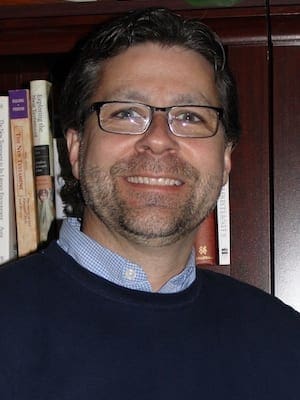I have always been a little jealous, but at the same time impressed, with folks who give a lot of time and effort toward praying.
I am especially impressed by those who, without any hesitation, put so much faith in the act of prayer. These “prayer warriors” model for the rest of us a relentless belief that God hears our prayers and that God answers our prayers.
Indeed, these folks will not only offer continual prayers for life’s challenges, they will see the outcome of those challenges directly related to their prayers.
But I have always struggled with prayer. I know how to pray – at least when it comes to the correct structure, the right language, and the exact tone of the voice.
But these are merely surface issues that do not reveal what happens in my mind and heart when I am praying.
I struggle to have any sense of assurance that God actually hears my prayers. I guess I am very much like the proverbial person who says that when he prays it feels as if his prayers are not even reaching the ceiling.
It is not for a lack of trying. In fact, at some points during each day I will stop and pray.
More often these are short periods when I have moments to myself, but they can also be more extended sessions of prayer when something heavy is weighing on my mind. So I do consider myself as giving an effort toward the activity of prayer.
But this is the reality that I have faced for years in my own Christian journey: I am often unsure how to pray, and I am very often unsure whether God hears my prayers and whether my prayers are that effective.
Perhaps many other folks struggle with prayer, at least at some point in their lives.
And, if we do struggle with prayer, we may need to be honest with ourselves that this is not only natural but normative. Admitting this may actually be the first step to moving toward a more authentic prayer life.
But, why, if Scripture commands us to pray, do we struggle with prayer?
The obvious answer to this question is that we are human, and prayer, at least as we understand it, does not mesh with our normal way of living as humans.
This may be particularly true because we rely so much on science and technology to provide answers to life’s big questions and life’s big struggles.
The problem is also compounded by the fact that in our normal ways of living, interacting and conversing with other beings, we experience their presence through one or more of our senses. But this does not happen with God.
I also think we struggle with prayer because we do not know what we should pray for.
Of course, there are needs that we and others have, some of which are so great that we cannot help but pray. But even in these situations we really do not know how to pray, and we struggle with the words we should express to God.
In these moments of disorientation, we really do not know how to pray. Maybe this is why the Apostle Paul writes in his letter to the Romans that in these times when we do not know how to pray, the Spirit of God intercedes for us with sighs that are too deep for words.
What Paul is telling us is that the Spirit intercedes for us because the Spirit knows us and knows our life situations better than we do. The Spirit is in tune with what is the heart of God for us and for our world.
And, at the heart of God is the love of God that Paul so beautifully describes as never being separated from us. This means that no matter what we encounter in life, God is always on our side, even if we do not realize that God is there or that God hears our prayers.
But there is also something very important we should understand about prayer that we often do not consider: Prayer is not really about us.
Our prayers, whether we feel they are reaching God, have nothing to do with who we are, but have everything to do with who God is.
In prayer, we are not saying to God that we are worthy of our requests. Rather, we are saying to God that we are helpless without the God who loves us and who has promised us hope and joy.
In this regard, prayer is not about what I want and need for my life; it is about where God is leading me in my life.
I may struggle to believe that God hears my prayers or that God will answer my prayers, but the hope that all of us have is that God is with us, loving us and moving us to places where God desires to use us, even if we do not understand.
DrewSmith, an ordained Baptist minister, is director of international programs at Henderson State University in Arkadelphia, Ark. He blogs at WildernessPreacher.
Assistant Director of the Honors College at Henderson State University in Arkadelphia, Arkansas.

